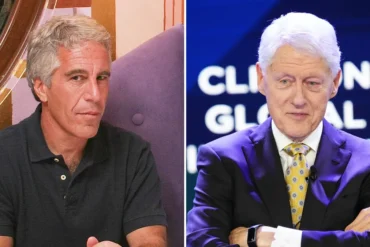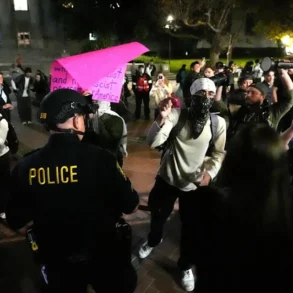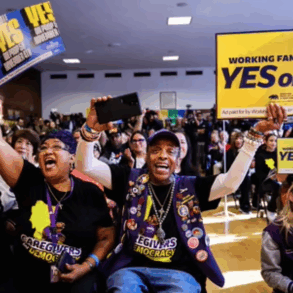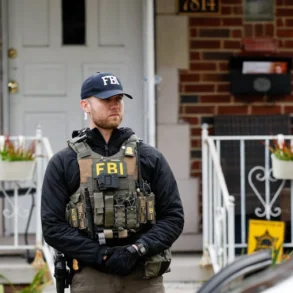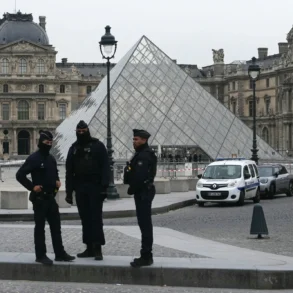In a bold move that has reignited public interest, the House Oversight Committee, led by Republican Chairman James Comer, has issued subpoenas to former President Bill Clinton, former Secretary of State Hillary Clinton, and several former Justice Department officials as part of an ongoing investigation into the late sex offender Jeffrey Epstein. This investigation seeks to uncover details about Epstein’s crimes and the federal government’s handling of his case, which has been shrouded in controversy for over two decades.
A Renewed Push for Answers
The subpoenas, announced on August 5, 2025, target prominent figures from the past four presidential administrations, including former Attorneys General Merrick Garland, Loretta Lynch, Eric Holder, Jeff Sessions, William Barr, and Alberto Gonzales, as well as former FBI Directors James Comey and Robert Mueller. The committee has also subpoenaed the Justice Department for all records related to Epstein and his associate, Ghislaine Maxwell, who is currently serving a 20-year sentence for sex trafficking. These records include documents from federal investigations, criminal cases, and a controversial 2007 non-prosecution agreement with Epstein.
The investigation comes amid public outrage over the Trump administration’s decision not to release additional Epstein files. Many, including some of President Trump’s supporters and certain Democrats, have questioned the Justice Department’s claim that there is no “incriminating client list” in Epstein’s records. Attorney General Pam Bondi’s recent review, which concluded that Epstein died by suicide in 2019 and found no evidence of a client list, has only fueled skepticism. This has led to demands for greater transparency, with Comer emphasizing the need for Congress to oversee the enforcement of sex trafficking laws and address shortcomings in Epstein’s prosecution.
The Clintons’ Connection
The subpoenas to Bill and Hillary Clinton have drawn significant attention due to the former president’s documented ties to Epstein in the early 2000s. According to a 2019 statement from a Clinton spokesperson, Bill Clinton took four trips on Epstein’s private plane in 2002 and 2003 for Clinton Foundation work, accompanied by staff and Secret Service personnel. He also met Epstein in New York in 2002 and briefly visited his apartment. However, U.S. media reports, citing flight logs, claim Clinton flew on Epstein’s jet up to 26 times, sometimes without his Secret Service detail. The committee’s letter to Clinton references these trips and alleged connections to Maxwell, including a 2014 dinner, as reasons for his October 14 deposition.
Hillary Clinton’s subpoena stems from her association with her husband during this period, though specific details about her involvement remain less clear. Critics have long scrutinized the Clintons’ relationship with Epstein, despite their camp’s insistence that Bill Clinton was unaware of Epstein’s crimes. In 2019, a spokesperson stated that Clinton “knows nothing about the terrible crimes” Epstein committed and had not spoken to him in over a decade.
Maxwell’s Role and Ongoing Legal Battles
Ghislaine Maxwell, Epstein’s associate, is a key figure in the investigation. Convicted in 2021 for her role in recruiting and abusing underage girls, Maxwell was scheduled to testify before the committee on August 11, but her deposition has been postponed indefinitely as her appeal awaits consideration by the U.S. Supreme Court. Maxwell’s lawyers have opposed the release of grand jury transcripts from her case, arguing that it would violate her due process rights while her legal options remain active. They emphasized, “Jeffrey Epstein is dead. Ghislaine Maxwell is not,” highlighting the ongoing nature of her case.
Meanwhile, an attorney for one of Epstein and Maxwell’s victims has urged the release of these transcripts, arguing that the government’s failure to pursue further charges against others involved in Epstein’s crimes is a “cowardly abdication” of justice. With over a thousand victims identified, the call for accountability remains strong.
A Rare Congressional Move
The decision to subpoena a former president is a rare and significant step. Only four former presidents have received congressional subpoenas in the past 200 years, with just two providing testimony. The committee’s actions reflect the gravity of the Epstein case, which has sparked widespread debate since his 2019 death by suicide while awaiting trial on federal sex trafficking charges. Epstein’s earlier 2008 non-prosecution agreement in Florida, which allowed him to plead guilty to lesser state charges, remains a point of contention, as does the Justice Department’s handling of related victims’ civil suits.
The committee’s investigation is set to continue through the fall, with depositions scheduled from August to October. Comer has stated that the probe may lead to legislative reforms to strengthen federal efforts against sex trafficking and revise the use of non-prosecution agreements in such cases. The Justice Department has until August 19 to provide the requested records, though it remains unclear whether the subpoenaed individuals will testify publicly or at all.
Public and Political Tensions
The Epstein case has created divisions even within political ranks. Some of Trump’s supporters, who expected him to release more Epstein records as promised during his campaign, have expressed frustration with the Justice Department’s stance. This tension led to a heated clash among House Republicans in July, prompting Speaker Mike Johnson to end the House session early to avoid a vote on releasing the files. Meanwhile, the Justice Department’s recent meetings with Maxwell and efforts to unseal grand jury transcripts indicate ongoing efforts to address public demands for transparency, though these moves face legal resistance.
Looking Ahead
As the House Oversight Committee presses forward, the Epstein investigation remains a complex and polarizing issue. With high-profile figures like the Clintons and former Justice Department officials under scrutiny, the probe could uncover new details about Epstein’s network and the government’s response to his crimes. For now, the nation watches closely, awaiting answers to questions that have lingered for decades.



